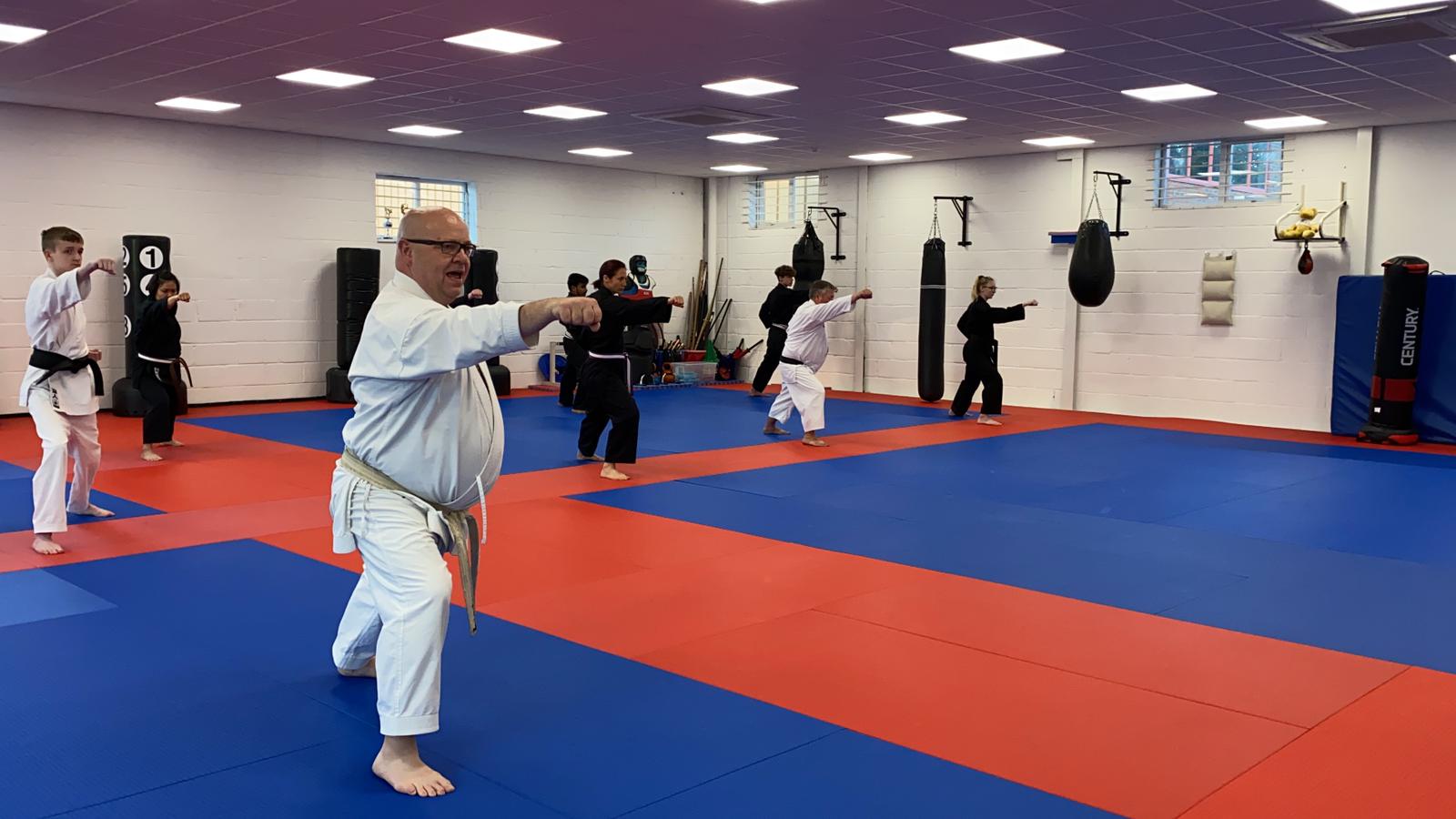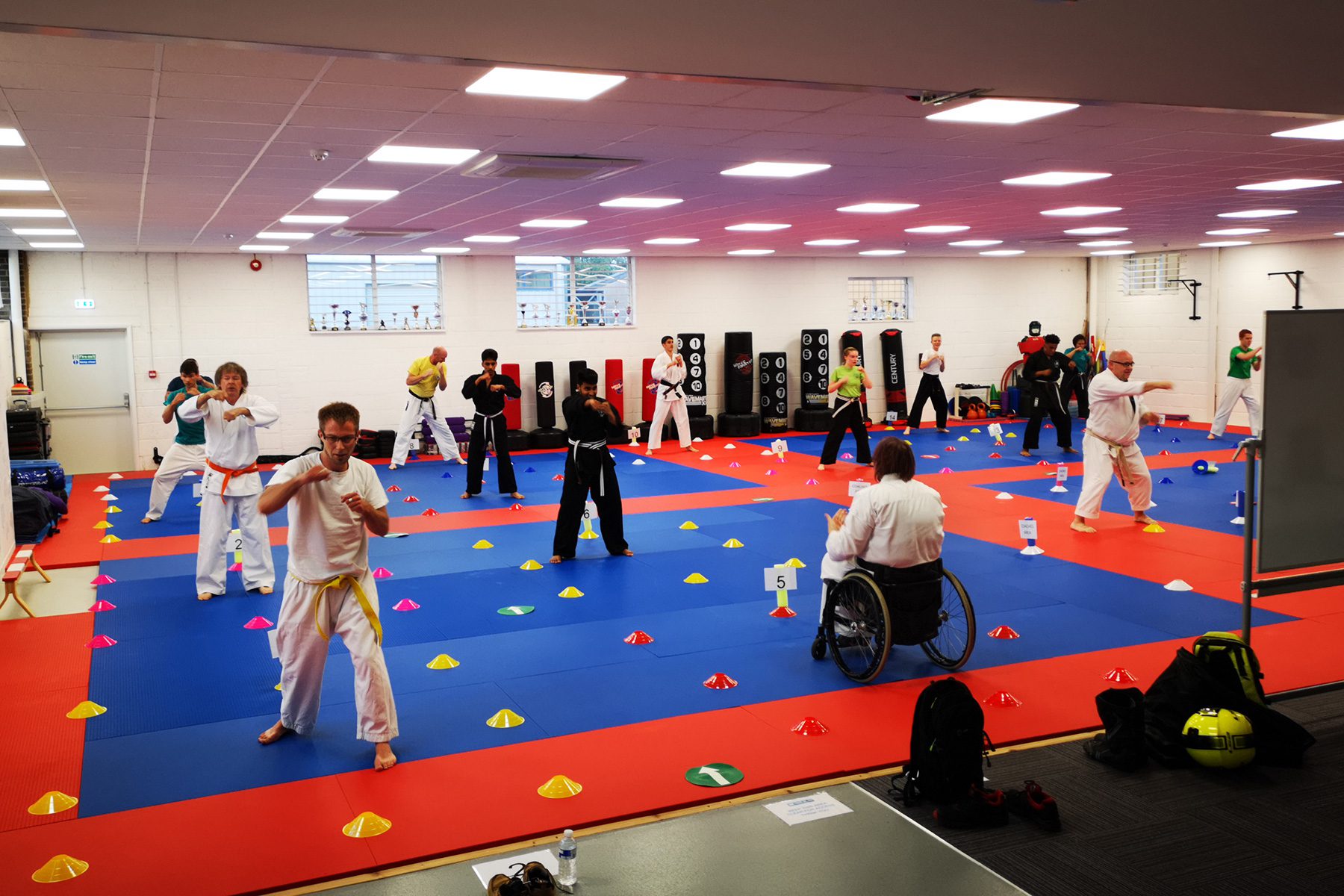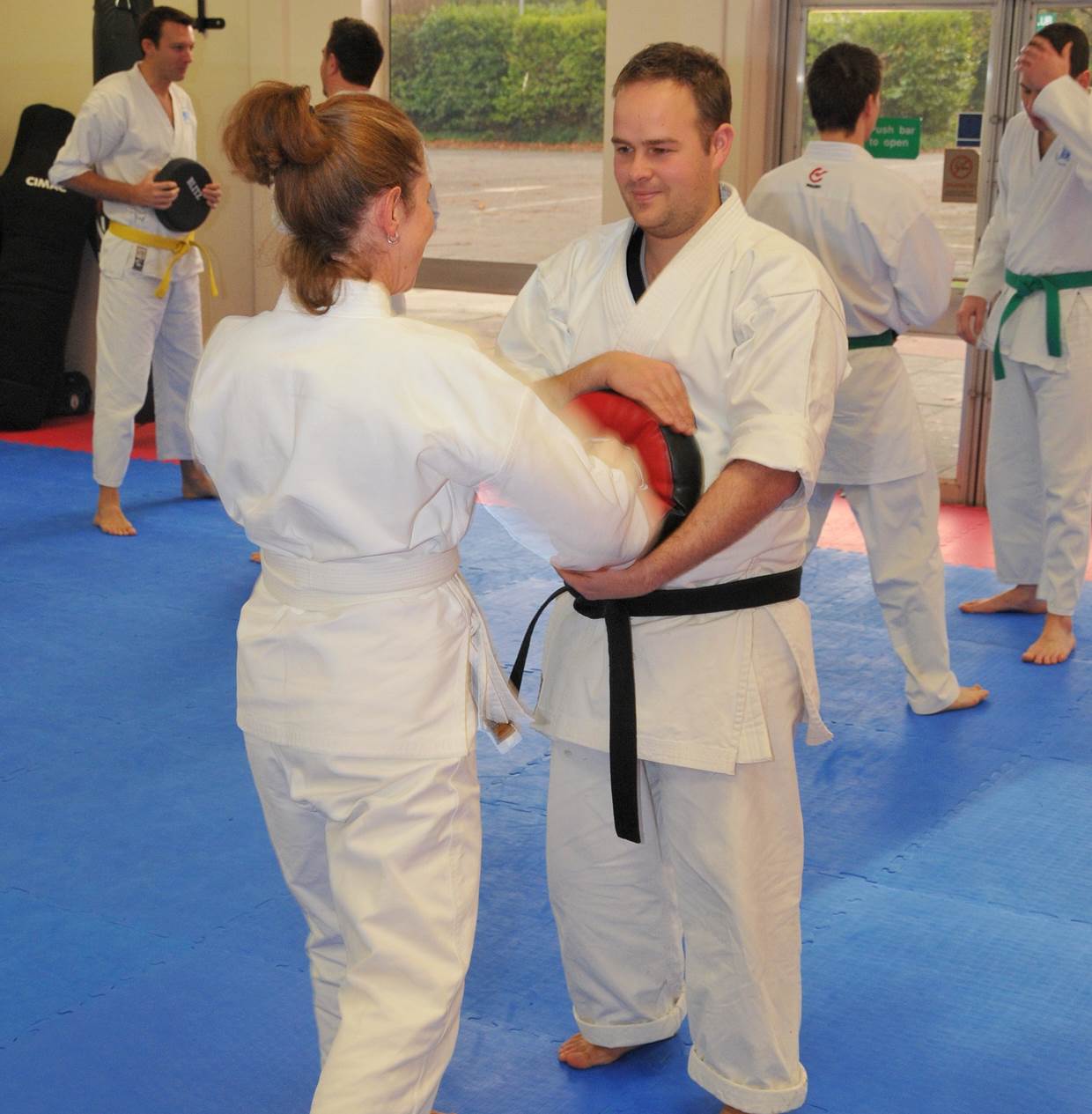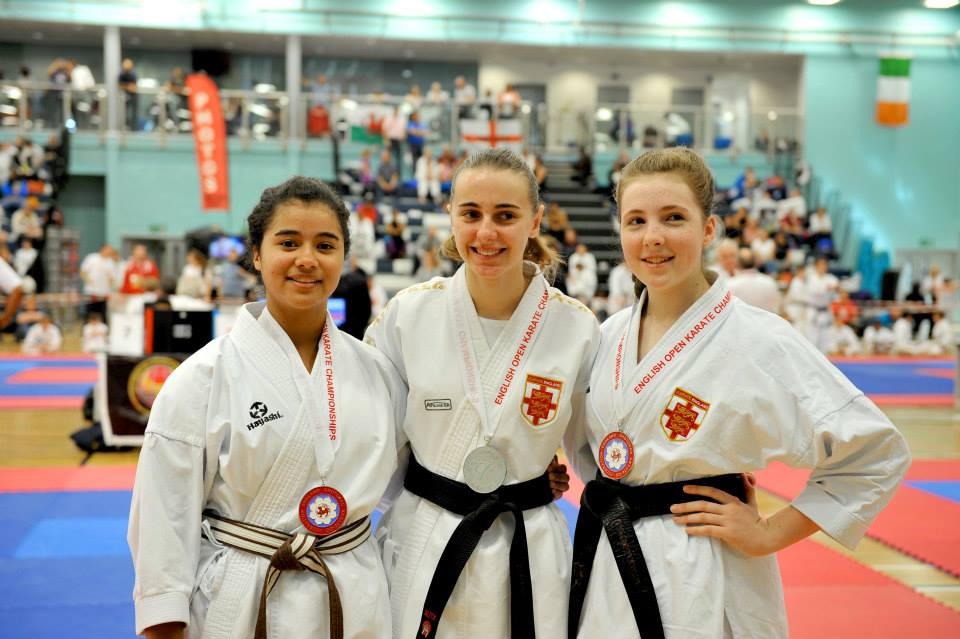Learn the principles of standing Martial Arts
Our Adult Karate classes based at our full time Karate Dojo centrally located in Basingstoke are suitable as a beginners Karate class to learn the principles of standing Martial Arts, such as Kickboxing, Karate, Taekwondo or Kung Fu and for the more experienced practitioner to learn and add new depth to their skills and knowledge base.
Other Karate Classes…
Our female coaches also run a dedicated Ladies only Karate class. For further information on our ladies only Karate class Click here.
We also provide a dedicated Wheelchair Karate class Click here for more info
We have a large range of equipment to help you train safely and effectively in Karate. You’ll learn how to use pads with a partner and vary the way you hold them to facilitate correct techniques. Once you understand this, we look at footwork, timing, rhythm, breathing and their impact on correct and effective technique. You can use our kick bags and standing bags to develop speed, accuracy and strength in your kicks and other techniques. Our adults Karate classes will help you to stretch yourself physically and mentally to reach the coveted black belt.
Taster session
To book your FREE taster session get in touch with us.
Working to explore the different options
We prefer not to pigeon-hole our adults Karate class with a specific label.
There are only so many ways that one can learn to punch, kick and block using one’s body. We work to explore the different options, in order to learn how to effectively strike, kick and block. Simultaneously we work to help you improve your flexibility, strength and fitness.
As you progress through your beginners Karate course, we teach you how to fine tune your techniques to make them faster, more powerful and ultimately more effective in a self-defence scenario.

What our clients think
What is Japanese Karate?
Within a Karate class, the teaching was traditionally split into three sections:
Kihon
Karate clubs practice Kihon, which translates from Japanese as the fundamental techniques of Karate, the various defensive movements, blocks, strikes, kicks, throws and punches. These Karate moves build a strong foundation to practice the more advanced Karate techniques. We aim to perform each move in our Adult Karate classes with control, precision and speed. With lots of good practice, these moves become instinctive.
Karate Kata
Karate Kata contain a structured set of movements performed in a set sequence. Each Kata develops important Karate skills such as balance, agility, coordination, strength and speed. Our Adult Karate classes review each of these movements to understand how Karate can be used for self defence purposes.
Our Basingstoke Karate club teaches Katas from both the Shotokan style of Karate and also the style of Shito-Ryu Karate. We work with these two styles of Kata because within them they contain a large enough range of Kata for all coaches and members to decide which Katas are the best option for the individual to learn.
Kumite
Our members near Basingstoke practice Kumite to allow them to take the techniques honed in Kihon and Kata and apply them to working with a partner in a series of pre-arranged sparring drills, called Kumite. At a much more advanced levels of Karate, adults can practice, still in a controlled and safe manner, more free flowing partner based Kumite.
Kihon, Kumite and Kata are part of the key essence of our adults Karate classes.
The stages of Karate training – Shu Ha Ri
As an adult learning Karate becomes more proficient, the training itself can become more challenging as the concepts and the techniques increase in complexity.
We follow a structured syllabus, which over time increases student’s confidence and co-ordination. Suppleness and strength improve as well. Karate as an activity is safe to take part in with the discipline and focus.
We have taught pupils who have ranged in age from 4 years old to 74 years of age, all of these people have realised different goals from their study and Karate training. Over time, someone training in Karate progresses in their practice from beginner to innovator to creative within their knowledge.
Your Title Goes Here
Your content goes here. Edit or remove this text inline or in the module Content settings. You can also style every aspect of this content in the module Design settings and even apply custom CSS to this text in the module Advanced settings.
Karate Beginner or Shu stage
At this stage of Karate training, the practitioner is just trying to learn the base movements, techniques and skills. In simple terms the Japanese concept is to copy the moves of the more experienced Karate person and remember them.
Intermediate Level or Ha stage
After some years of practice and having done many Karate classes, the Karate exponent starts to question the ‘hows and the whys’ of their Karate. Why do I perform a certain Karate moves like this, what happens if I do it another way. The techniques that you’ve practiced thousands of times at the Karate club have become instinctive
Advanced Level of Karate or Ri Stage
This stage is the most difficult and can takes years and years of Karate practice. With indepth understanding across your Karate you start to develop and practice your style of Kata.
To use an analogy to explain this concept further. Imagine baking a cake, at the Shu stage you follow the ingredients recipe exactly. At the Ha stage, you don’t need to have the receipt out to start making the cake and finally at the Ri stage, you start changing ingredients to suit your tastebuds, this is Shu-Ha-Ri.
If you are interested in competitions, then our Adults Karate club can give you that opportunity with several members of the competition squad training with the England Karate squad and competing internationally.
Many people who start learning Karate-do in Hampshire with us, do so to get fit and lose weight. If you are prepared to put the effort and the time in, then you can achieve both goals with us and learn some very useful self defence skills along the way.
I’d like to find out more please
Please enter your contact details below to book a free taster class and find out more about how we can help you.



